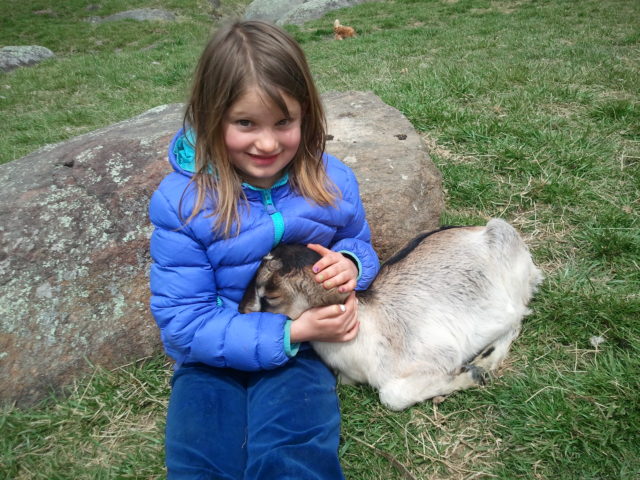
As farmers, we understand the cycles of life. We experience new life as calves are born or chicks are hatched. And we experience death, as we lose our animal companions to predators, disease, old age, or difficult birth. It happens. This is the way of farming, especially for farmers like us who surround ourselves with animals — cows, chickens, goats, horses and donkeys, or should I say one special donkey.
The fact is we bond with our farm animals. The longer they are around, the stronger that bond. For that reason we not only owe a sense of gratitude to those who give their time to care for the animals on the farm, but for the toll it takes on those that bond with these sentient, expressive beings only to have to say good-bye.
Angel and Dieter are routinely saying goodbye to calves they have raised for auction. It is simply a sad fact that anyone who raises livestock has to learn to accept. Roberta and chicken committee members too often come to the coop to find their favorite rooster or chicken victims of a predator attack. And so it goes across the farm.
We have recently experienced the passing of a few of our animal friends on the farm and would like to acknowledge the losses with special sympathies to those who loved the animals deeply enough to grieve their passing.
Simply put, death comes with the territory of farming. They say it gets easier. For a newcomer like me, I hope that is the case.
Goliath the Rooster
At the coop we’ve lost chickens to fox, eagles, hawks, raccoons, owls, as well as many other predators, some of which we cannot identify. Again, it’s part of farming with animals. And sometimes, despite your best predator proofing tricks, they still find their way in.
Such was the fate of Goliath the Rooster, a favorite among the chicken tenders. “Oh no! Not Goliath,” Chicken Committee Chair Roberta exclaimed upon hearing about the fatal predator attack. Goliath continues to be missed by chicken committee members who admired and respected his brave and selfless protection of the flock.
Xander the Goat
Farm animals like cows, sheep, goats, and horses are herd animals (they like to be in groups). They are also prey animals, which means they try to hide any illness so the predators don’t recognize which are the weaker animals in the herd. And because farm animals are so good at hiding their illnesses, it can be difficult to see early signs of disease, even for the most observant owner.
Xander the Goat became sick from bloat in October. Although treated by a vet who expected him to recover, it was too late for Xander and he died the following day. A Nubian and Alpine cross, Xander came to Farm Colony as a young kid in April 2013 from Cair Paravel Farm. He was four years old at the time of his death.
“He was a sweet and exceptionally well-mannered goat,” expressed goat committee member Deborah in reporting on Xander’s demise. “I sure miss him.”
Dawn the Goose
One day Dawn the Goose was waddling through the pasture with her companion, Hissy the Goose, showing up as usual at the chicken coop to beg chicken feed from the accommodating coop cleaners. The next day, Dawn was gone. She disappeared during our single digit cold spell this winter. What happened to her is anyone’s guess. Was it the cold? Most blame a predator, which is likely. All we know for sure is that Dawn is missing and presumed dead. That leaves Hissy the last remaining white goose on the farm, down from an original number of five who once called Farm Colony home.